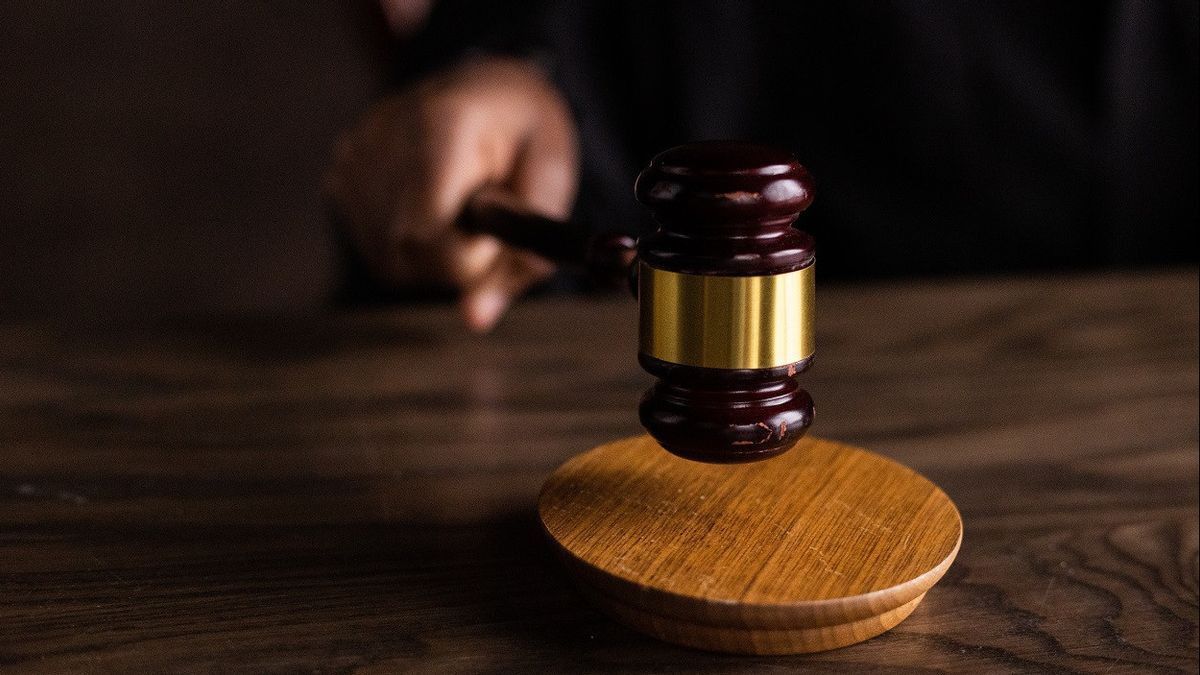YOGYAKARTA In court, witnesses are required to testify honestly without adding or reducing. But it is not uncommon for witnesses to give false testimony in front of judges even though he had previously been sworn in. Then, what is false testimony and is there any law given to the perpetrators of false testimony?
According to the Big Indonesian Dictionary (KBBI), the witness has some understanding, one of which is that the person who is asked to attend an event is considered to know the incident so that at one point, if needed, can provide information confirming that the incident really happened.
Article 1 paragraph 27 of Law no. 8 of 1981 concerning the Criminal Procedure Code (KUHAP) explains that testimony is evidence in a criminal case in the form of information from testimony about a criminal event that was heard, seen, and experienced on its own by showing the reason for his knowledge.
A witness will be sworn in before giving his testimony before the judge. With the oath, the witness is expected to provide a clear statement to the judge regarding a case he witnessed or experienced.
However, in practice, witnesses do not always provide information according to the facts experienced. This is an indication that the testimony revealed by witnesses in court is false.
Someone who gives false information when he is a witness at trial can be convicted. This is regulated in Article 242 of the Criminal Code, paragraph 1 and 2 concerning giving information on oath or can be called a false oath offense or false information. The following is the article, quoted from Lawonline.
"Whoever is in a state where the law determines to give information on oath or to make a legal effect on such information, intentionally giving false information on oath, either verbally or in writing, personally or by his special power of attorney for that, shall be punished with imprisonment for a maximum of seven years."
If false information on oath is given in a criminal case and harms a guilty defendant or suspect, he is threatened with a maximum imprisonment of seven years.
In Islamic law, giving false oaths is also strictly prohibited. Even Islam provides punishment for people who violate their oaths. Quoted from Islam.nu.or.id, related to false punishment referring to Qur'an Surat Al-Maidah Paragraph 89
You can't do it, you can't do it, you can't do it, you can't do it, you can't do it, you can't do it. If you don't want to do it, you don't want to do it, you don't want to do it. If you don't want to do it, you don't want to do it, you just have to do it.
Meaning:
Allah does not punish you for your unintentional oaths (to swear), but He punishes you for the oaths that you intentionally commit, then the cadre (depth of oath violation) is to feed ten poor people, namely from the food you usually give to your family, or give them clothes or liberate a martyred servant. Anyone who is unable to do so, then (his brother) fasts three days. That's thefare of your oaths if you swear. Make your oaths clear. Thus Allah explains His laws to you so that you are grateful (to Him).
That's information related to what false testimony is. To get other interesting information, visit VOI.ID.
The English, Chinese, Japanese, Arabic, and French versions are automatically generated by the AI. So there may still be inaccuracies in translating, please always see Indonesian as our main language. (system supported by DigitalSiber.id)













